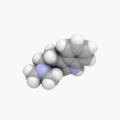
DMT-Nexus member
Posts: 112 Joined: 08-Jul-2012 Last visit: 27-Dec-2019 Location: UK
|
Hey guys,
I've been looking at a solvent I can get in the UK for extractions. At the minute when I extract, I buy x12 Ronson Lighter Fluid cans. This is expensive, and also a little suspicious if I keep buying them in such amounts.
I found 'Tetrosyl Panel Wipe' which contains Hexane. Is hexane as good as lighter fluid as a solvent? Does it pull equally well, and can it be used to freeze precipitate?
Thanks in advance.
|
|
|
|
|

DMT-Nexus member
Posts: 336 Joined: 01-Jul-2011 Last visit: 29-Jun-2024 Location: Gaia
|
hexane should be even more selective in the pulls than regular naptha, which is usually a mix of more hydrocarbons.
but i think it really depends what kind of naptha you have. if you are using naptha with higher boiling point, than my guess is, it will be less selective and pull more plant oils when warmed. when i experimented with petroleum ether or naptha ( 45 - 60 c ) with lower boiling point it was very selective and never pulled alot of oils. recently i worked with hexane, and my experience was the same as with the petroleum ether ( 45 - 60 c ).
so hexane is great yes, as long as its pure...naptha in my opinion should be some lighter distilate to be more selective.
|
|
|

analytical chemist
   
Posts: 7463 Joined: 21-May-2008 Last visit: 09-Aug-2025 Location: the lab
|
what do you mean by selective? no single solvent is selective. hexane is quite capable of pulling phytolipids. it's excellent as a recrystallization solvent. pull with dcm, re-x with hexane. "Nothing is true, everything is permitted." ~ hassan i sabbah
"Experiments are the only means of attaining knowledge at our disposal. The rest is poetry, imagination." -Max Planck
|
|
|

DMT-Nexus member
Posts: 112 Joined: 08-Jul-2012 Last visit: 27-Dec-2019 Location: UK
|
benzyme wrote:what do you mean by selective? no single solvent is selective.
hexane is quite capable of pulling phytolipids.
it's excellent as a recrystallization solvent. pull with dcm, re-x with hexane. What are phytolipids? and I take it they are something we don't want in our solvent?
|
|
|

DMT-Nexus member
Posts: 336 Joined: 01-Jul-2011 Last visit: 29-Jun-2024 Location: Gaia
|
@benzyme
from my obervations heavier naptha(zippo naptha which is more viscous and higher bp) is not so selective when extracting at relative room temperature.lighter naptha with boiling point of 45 degrees c, behaved more or less like hexane always pulling nothing more than white spice and yellow oil (phytollipid i guess).with zippo i observed more than just the yellow colored oil , the consistency was sometimes like jungle spice.i am almost sure there is something more inside the mix.like there is some connection between the boiling point and the polarity of the solvent ?!
otherwise i completely agree that hexane is not completely selective, i know what you meant by that statement. actually i downloaded a paper posted by you some time ago, solvent partitioning i think it was..very good info i am definitely going to read more on the solvent's used, their application and solvent ratios.
|
|
|

analytical chemist
   
Posts: 7463 Joined: 21-May-2008 Last visit: 09-Aug-2025 Location: the lab
|
naphtha is a slew of aliphatics and isomers, some have aromatics. of course this will extract a variety of compounds, and the alkaloids will be more soluble in this solution than a completely nonpolar alkane like hexane. for this reason, and the fact that you can heat the solvent to raise the solubility, this makes naphtha a more ideal solvent for extracting than hexane, which is better suited for recrystallization. hexane makes for some very impressive crystals, it evaps much more easily than heptane. "Nothing is true, everything is permitted." ~ hassan i sabbah
"Experiments are the only means of attaining knowledge at our disposal. The rest is poetry, imagination." -Max Planck
|
|
|

DMT-Nexus member
Posts: 336 Joined: 01-Jul-2011 Last visit: 29-Jun-2024 Location: Gaia
|
i think it depends for which fraction of petroleum ether or naphtha we are talking about. my point was that lighter fractions of naphtha are behaving more or less like hexane and they are used as substitute for hexane in labs.i had the same observations with petroleum distilate with boiling point (40-60) very easy to evap, good crystal formation. not the same with heavier distilate like zippo naphtha. even at room temperature it tends to pull more than just the white spice, and the yellow phyto lipid.
from wikipedia : The following distillation fractions of petroleum ether are commonly available: 30 to 40 °C, 40 to 60 °C, 60 to 80 °C, 80 to 100 °C, 80 to 120 °C and sometimes 100 to 120 °C. The 60 to 80 °C fraction is often used as a replacement for hexane. ^ Williamson, Kenneth. Organic Experiments. 9th Ed. Boston: Houghton Mifflin Company, 2004.
|